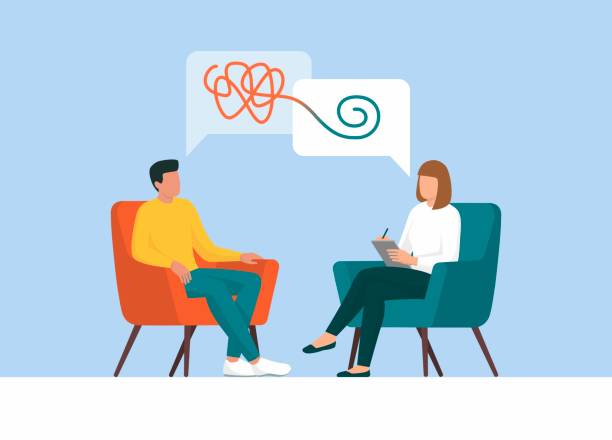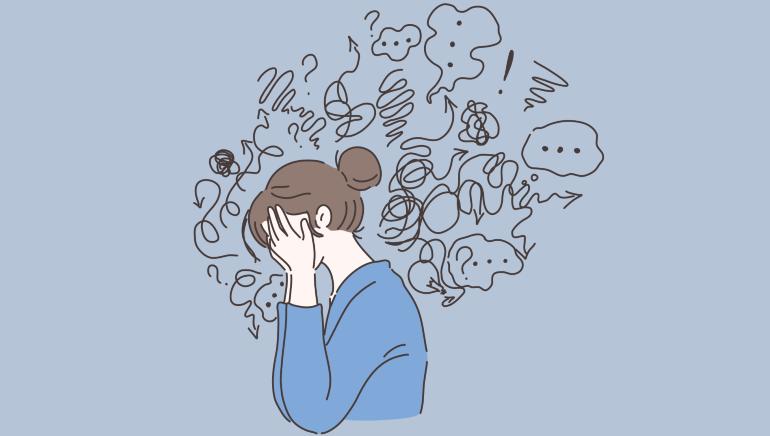Coping with Stress and Depression
TAKING CARE OF OUR MENTAL HEALTH IS VERY IMPORTANT!
"Depression is more than just feeling down or having a bad day. When a sad mood lasts for a long time and interferes with normal functioning, you may be depressed."
Depression and anxiety disorders are among the most common psychiatric illnesses; they are highly comorbid with each other, and together they are considered to belong to the broader category of internalizing disorders.
Stress is most often thought of as something harmful. Stress causes adverse effects only when it is too strong or lasts too long and thus exceeds the adaptive capacity of the individual. Moderate stress facilitates adaptation to environmental demands, thereby stimulating intellectual growth. In contrast with healthy people, patients with depression in stressful situations more often use strategies based on avoidance and denial and have more difficulties in finding positive aspects of stressful events.
CAUSES OF STRESS AND DEPRESSION
- losing family members
- breakup
- too much workload
- illness and mental disorders
- abuse, etc.
These are just some of the major causes of stress and depression. This could result in bad situations where a person could hurt themselves feeling that way, in worse case scenarios a person could commit suicide and could be the cause of his/her death.
Depression and stress should not be taken lightly, for we must take care of our mental health. We must learn to cope and prevent these kinds of situations, so we provided some ways how one must take care of their mental health.
HERE ARE SOME WAYS TO TAKE COPE WITH STRESS AND DEPRESSION:
1. Getting Enough Sleep
-Good sleep improves your brain performance, mood, and health. Not getting enough quality sleep regularly raises the risk of many diseases and disorders. These range from heart disease and stroke to obesity and dementia.
2. Getting Regular Exercise
- Regular exercise can increase self-confidence, improve your mood, help you relax, and lower symptoms of mild depression and anxiety. Exercise can also improve your sleep, which is often disrupted by stress, depression, and anxiety.
3. EATING A HEALTHY DIET
- A balanced diet can support a healthy immune system and the repair of damaged cells. It provides the extra energy needed to cope with stressful events.
4. FIND YOUR HOBBIES
-people with hobbies are less likely to suffer from stress, low mood, and depression. Activities that get you out and about can make you feel happier and more relaxed. Group activities like team sports can improve your communication skills and relationships with others.
5. GOING TO AN EXPERT
 - Doctors can offer several solutions for stress. These often include therapy to help you develop and strengthen your stress-management skills. Sometimes, medicine is also something that can calm your worries and anxiety. Medical professionals can offer many natural alternatives to you, too, such as meditation
- Doctors can offer several solutions for stress. These often include therapy to help you develop and strengthen your stress-management skills. Sometimes, medicine is also something that can calm your worries and anxiety. Medical professionals can offer many natural alternatives to you, too, such as meditation
If lifestyle choices are causing you stress, you may consider changing the way you approach your personal or professional life. Some ways you can help decrease this kind of stress include:
- putting yourself under less pressure to perform at work or school, such as by
- lowering your standards to a level you still find acceptable
- not taking on as many responsibilities at work or activities at home
- sharing responsibilities or delegating tasks to others around you
- surrounding yourself with supportive and positive friends and family members
- removing yourself from stressful environments or situations
Stress can result from many personal, professional, and environmental causes. The best way to cope with stress is by managing the stressors that are within your control. For example, you could walk away from toxic relationships or leave a stressful job. You can also practice accepting or coping with the stressors that are out of your control, with actions like meditating or drinking less caffeine and alcohol.
Depression can make it much more difficult to control or cope with stressors, but seeking out counseling or therapy or taking medication can allow you to better confront stressors and deal with them in a positive, constructive way.
Depression and anxiety disorders are among the most common psychiatric illnesses; they are highly comorbid with each other, and together they are considered to belong to the broader category of internalizing disorders.
Stress is most often thought of as something harmful. Stress causes adverse effects only when it is too strong or lasts too long and thus exceeds the adaptive capacity of the individual. Moderate stress facilitates adaptation to environmental demands, thereby stimulating intellectual growth.
In contrast with healthy people, patients with depression in stressful situations more often use strategies based on avoidance and denial and have more difficulties in finding positive aspects of stressful events.
CAUSES OF STRESS AND DEPRESSION
- losing family members
- breakup
- too much workload
- illness and mental disorders
- abuse, etc.
These are just some of the major causes of stress and depression. This could result in bad situations where a person could hurt themselves feeling that way, in worse case scenarios a person could commit suicide and could be the cause of his/her death.
Depression and stress should not be taken lightly, for we must take care of our mental health. We must learn to cope and prevent these kinds of situations, so we provided some ways how one must take care of their mental health.
HERE ARE SOME WAYS TO TAKE COPE WITH STRESS AND DEPRESSION:
1. Getting Enough Sleep
-Good sleep improves your brain performance, mood, and health. Not getting enough quality sleep regularly raises the risk of many diseases and disorders. These range from heart disease and stroke to obesity and dementia.
2. Getting Regular Exercise
- Regular exercise can increase self-confidence, improve your mood, help you relax, and lower symptoms of mild depression and anxiety. Exercise can also improve your sleep, which is often disrupted by stress, depression, and anxiety.
3. EATING A HEALTHY DIET
- A balanced diet can support a healthy immune system and the repair of damaged cells. It provides the extra energy needed to cope with stressful events.
4. FIND YOUR HOBBIES
-people with hobbies are less likely to suffer from stress, low mood, and depression. Activities that get you out and about can make you feel happier and more relaxed. Group activities like team sports can improve your communication skills and relationships with others.
5. GOING TO AN EXPERT
 - Doctors can offer several solutions for stress. These often include therapy to help you develop and strengthen your stress-management skills. Sometimes, medicine is also something that can calm your worries and anxiety. Medical professionals can offer many natural alternatives to you, too, such as meditation
- Doctors can offer several solutions for stress. These often include therapy to help you develop and strengthen your stress-management skills. Sometimes, medicine is also something that can calm your worries and anxiety. Medical professionals can offer many natural alternatives to you, too, such as meditationIf lifestyle choices are causing you stress, you may consider changing the way you approach your personal or professional life. Some ways you can help decrease this kind of stress include:
- putting yourself under less pressure to perform at work or school, such as by
- lowering your standards to a level you still find acceptable
- not taking on as many responsibilities at work or activities at home
- sharing responsibilities or delegating tasks to others around you
- surrounding yourself with supportive and positive friends and family members
- removing yourself from stressful environments or situations
Stress can result from many personal, professional, and environmental causes. The best way to cope with stress is by managing the stressors that are within your control. For example, you could walk away from toxic relationships or leave a stressful job. You can also practice accepting or coping with the stressors that are out of your control, with actions like meditating or drinking less caffeine and alcohol.
Depression can make it much more difficult to control or cope with stressors, but seeking out counseling or therapy or taking medication can allow you to better confront stressors and deal with them in a positive, constructive way.




Comments
Post a Comment